News
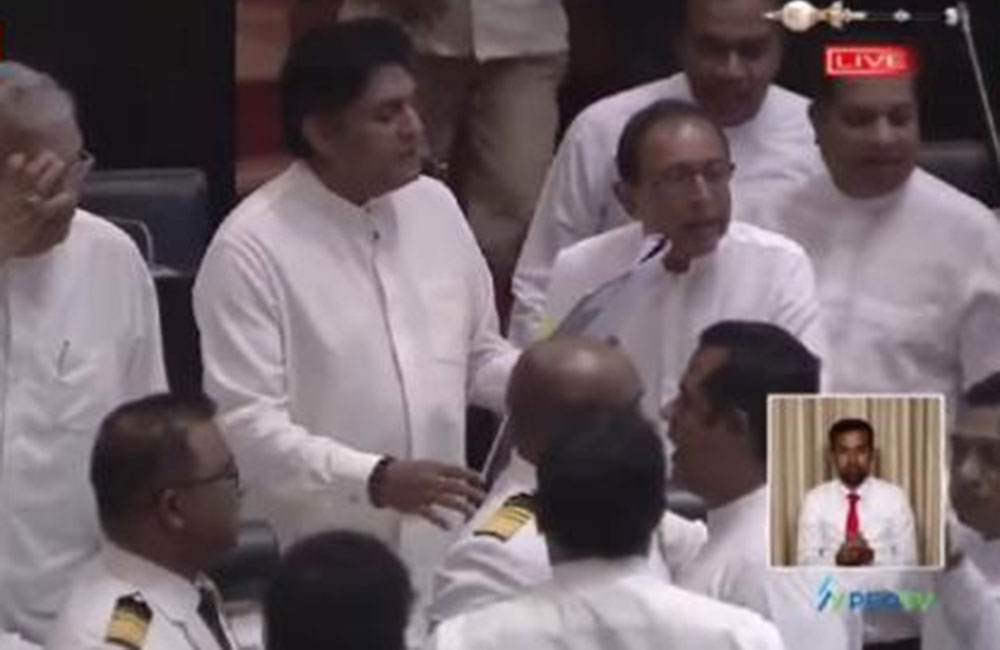
Why opposition leader & Nalin Bandara not punished ? Sanath Nishantha writes
Sri Lanka Podujana Peramuna (SLPP) MP Sanath Nishantha has written to the Speaker over the decision to suspend him from Parliamentary sittings for a period of 2 weeks.
In his 06-point letter, MP Sanath Nishantha expressed regret over the incident that occurred in Parliament leading to his suspension, while he also acknowledged that such an incident should not have taken place in Parliament.
MP Sanath Nishantha further outlined the cause for his actions and also pointed out various violations that had taken place by Opposition Leader MP Sajith Premadasa and Samagi Jana Balawegaya (SJB) MP Nalin Bandara at the time.
Claiming that action being initiated only against him was a violation of his Parliamentary privileges, MP Sanath Nishantha urged the Speaker to investigate and initiate proper action against MPs Sajith Premadasa and Nalin Bandara in this regard.



ICC U-19 World Cup 2024 moved from Sri Lanka to South Africa - Report
The International Cricket Council (ICC) has moved the Under 19 World Cup to South Africa from Sri Lanka, the Indian cricket news website Cricbuzz reported.
The decision has been taken by the ICC board in view of the administrative uncertainty in Sri Lanka Cricket. The ICC is currently meeting in Ahmedabad.
After a detailed deliberations, the board has decided to uphold the November 10 decision to suspend the SLC. The board said that while cricket involving the island team will continue uninterrupted, the suspension, however, will not be overturned, according to the relevant report.
“It was a unanimous decision by the board that the suspension cannot be lifted. Cricket in the country will continue as normal,” a well-placed source told Cricbuzz. Shammi Silva, the president of the SLC, has attended the board meeting, held at ITC Narmada in Ahmedabad on Tuesday, November 21.
The board has also decided that the Sri Lanka team will continue to play international cricket despite the suspension of SLC. The game will run through the suspended SLC, which will receive controlled funding, Cricbuzz added.
The Under-19 World Cup was scheduled to take place between January 14 and February 15. The dates will clash with the second edition of SA20, which runs from January 10 to February 10 but a top Cricket South Africa (CSA) official told Cricbuzz that both events can be organised simultaneously as the T20 league is being overseen autonomously by a body independent of CSA, Cricbuzz mentioned.
The option of holding the event in Oman and UAE were also considered, but South Africa was eventually preferred because of better infrastructure: the requirement was three grounds, and Oman only has one. Furthermore, moving the teams between UAE and Oman would have been an expensive proposition and the Board finally zeroed in on South Africa. CSA has agreed to spare three venues for the mutli-nation championship.
SLC chief Silva is of the opinion that the confusion could have been avoided but said cricket in the country will remain uninterrupted.
“I have requested the ICC board to allow the game to continue and the members have upheld our request,“ Silva told Cricbuzz.
He has also confirmed that Sri Lanka Under-19 team will take part in the U-19 World Cup in South Africa.
--Agencies
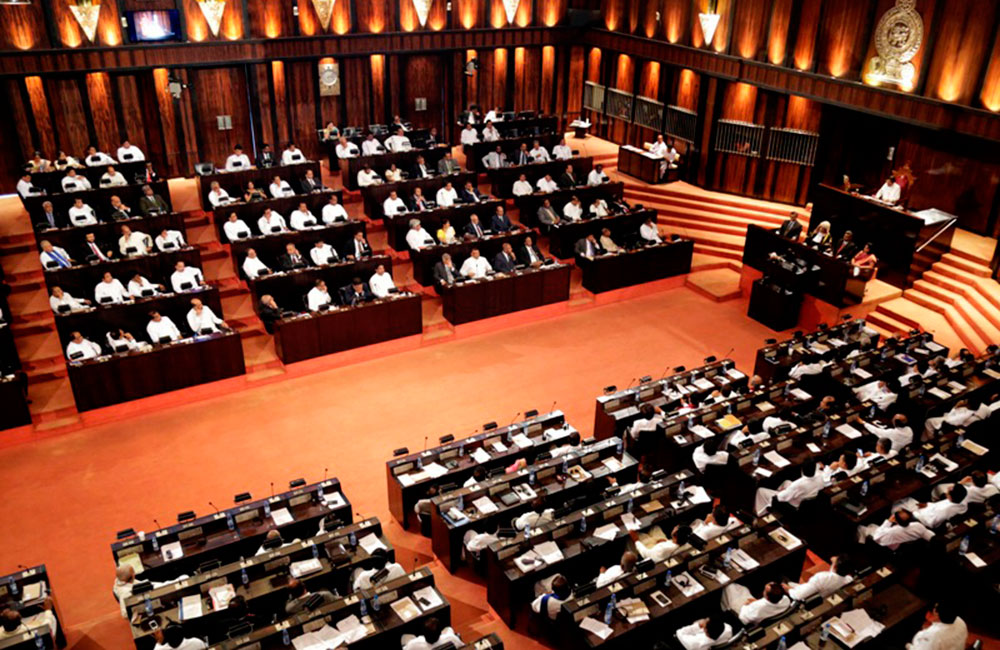
Parliament takes vote on allocation of expenditure heads for ex-Presidents
The leader of the National People’s Power, Anura Kumara Dissanayake, demanded a vote in Parliament this evening (22), protesting the allocation of expenditure heads for former presidents in the 2024 Budget.
However, a total 62 MPs voted in favor of the proposal while only 03 votes against it. NPP parliamentarians Anura Kumara Dissanayake, Vijitha Herath and Harini Amarasuriya were the only MPs to vote against when the division was called.
Accordingly, the Speaker Mahinda Yapa Abeywardana informed the House that Heading No. 01 was passed with amendments during the Committee Stage.
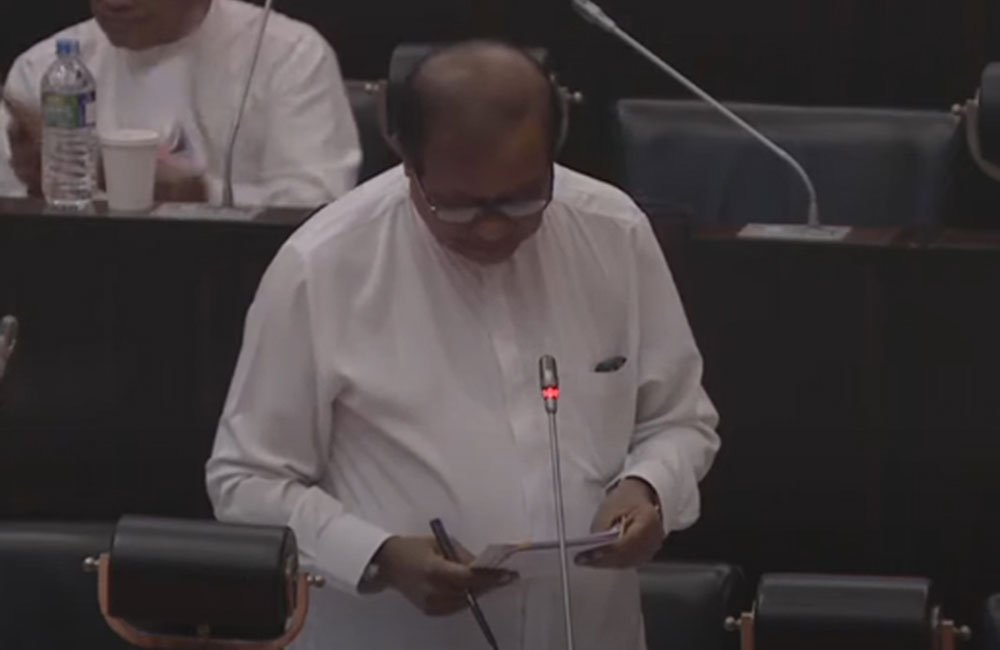
2022 O/L results to be released within next few days – Edu. Minister
Minister of Education Susil Premajayantha states that the results of the 2022 G.C.E. Ordinary Level examination will be released within the next few days.
Commenting on this during today’s parliamentary session, the Minister emphasized that the release of the results was delayed owing to the delay in the commencement of paper-marking activities for around three months.
“Now the children are getting older due to the examinations being postponed”, he said.
“We released the Grade 05 Scholarship Examination results within a month. Never in history have the results been released within a month”, Premajayantha added.
Meanwhile, the Education Minister also expressed that all necessary arrangements have been made to hold the G.C.E. Advanced Level examination as scheduled.
“Actually, the A/L examination would have been held in November as previously planned, however, the release of results was delayed”, he said.
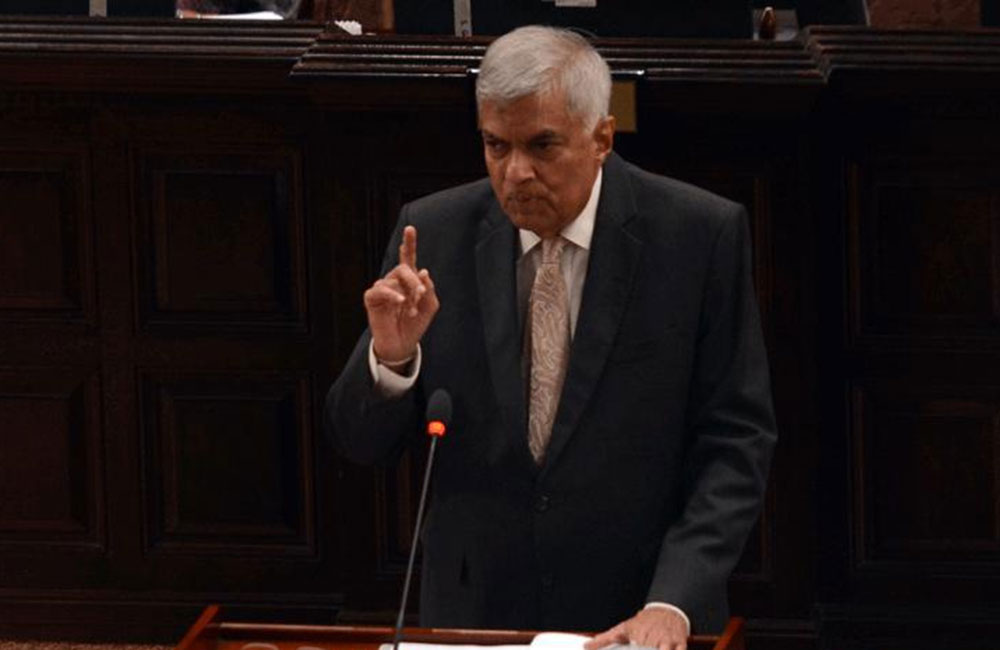
Presidential & Parliament elections next year
President Ranil Wickremesinghe has announced that the Presidential and Parliamentary elections will be held next year.
Addressing the Parliament today (Nov 22), President Wickremesinghe further assured that the two elections will not be postponed.
“How can you say we are scared to hold elections? The elections will be held. Both the Presidential and Parliamentary elections will be held next year,” he said.
The President further said all the local and provincial council elections could be conducted the following year, adding that there were no issues in carrying it out.
He made the announcement while joining the Parliamentary debate on the Appropriation Bill for the fiscal year 2024.
The President made the remarks in response to a question raised by Chief Opposition Whip MP Lakshman Kiriella.
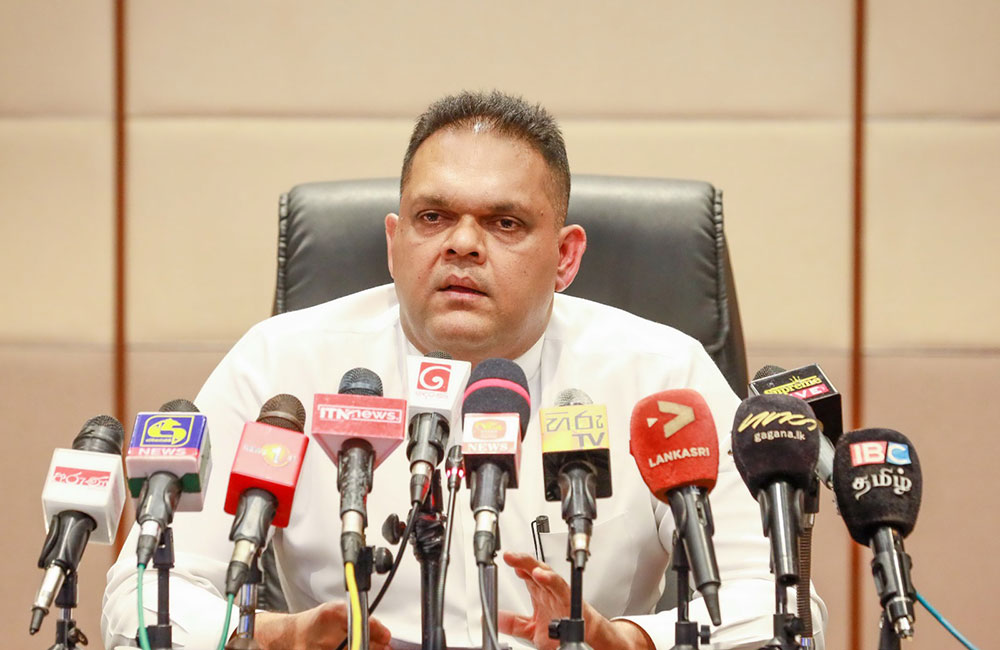
Budget aims at preventing recurrence of an economic crisis – Govt
The current budget, characterized by formal economic management, has been unveiled to proactively avert the recurrence of severe economic crises within Sri Lanka, State Minister of Finance Shehan Semasinghe said.
State Minister Semasinghe emphasized the dedicated focus within this year’s budget to extend relief to those significantly impacted by the economic downturn.
“There is a deliberate commitment to fostering the establishment and support of small and medium-scale businesses as part of the comprehensive economic strategy,” he pointed out.
State Minister of Finance Shehan Semasinghe expressed these views during a discussion held on Monday (Nov 20) at the Ministry of Finance on the budget 2024.
The State Minister further said “The budget presented this year has laid the groundwork for growth across various sectors of the economy. To foster economic growth, it is imperative to restore the country to the pre-crisis economic levels. The groundwork for this resurgence was established in the previous budget. The current year’s budget is designed to further fortify economic stability and the progress in achieving this stability can be verified by scrutinizing data provided by the Central Bank.
“During the presentation of the 2023 budget, the nation found itself in a precarious situation, unable to produce a comprehensive budget document. At that critical juncture, the country grappled with profound economic downturn and political-social turbulence, marking a significant crossroads in its history.
“It is noteworthy to acknowledge that the attained economic stability is a direct outcome of the 2023 budget document. Additionally, the government anticipates a 1.8% economic growth for the upcoming year, with aspirations to surpass that target and achieve a growth rate of 2% or more. The formulation of this year’s budget took into account agreements established with the International Monetary Fund and the nation’s creditors. Of particular significance is the commitment to achieving debt sustainability, thereby emphasizing meticulous attention to debt restructuring and various other considerations in the preparation of the budget proposals.
“The government has prioritized addressing the challenges faced by population groups severely affected by the ongoing economic crisis. Special consideration has been given to public servants, who have not seen a salary increase in many years. Consequently, the government has taken the initiative to grant an additional allowance of Rs. 10,000,” he said.
Stating that focused attention has been extended to various vulnerable groups, including low-income earners, kidney patients, individuals receiving disability allowances and those receiving elderly allowances, he said this comprehensive approach is expected to benefit approximately 3 million families.
“As per the economic crisis, small and medium-sized businesses, which faced significant challenges, have been a focal point. The current budget allocates over Rs. 30 billion for their rehabilitation. A structured system has been devised to facilitate their access to credit facilities, offering subsidized interest rates in the single-digit range. Furthermore, the government has lifted restrictions on imports, excluding personal-use vehicles, in a move aimed at fostering greater economic flexibility and adaptability,” he added.
Also addressing the meeting, the Director General of the President’s Trade Union, Saman Ratnapriya, commended President Ranil Wickremesinghe for steering the country from a challenging state, marked by fuel and gas queues, to a more stable condition.
Attributing this progress to the foundation laid by the previous budget, extending into the 2024 budget, Ratnapriya highlighted a proposal to increase government employee salaries by Rs. 10,000, acknowledging the existing pressures on the public.
“Acknowledging the current challenges faced by the populace, including the burden of elevated service charges, it is imperative to recognize the potential positive outcomes of advancing the President’s economic program. Despite the existing pressures, the belief is firm that adhering to this economic strategy will pave the way for the construction of a robust and sustainable economy,” he said.
On the fiscal front, W. M. G. Kumaratunga, Director of the Economic Stabilization Unit at the President’s Office, provided insights into revenue collection. Noting the significant milestone, he projected estimated state revenue of Rs. 3,101 billion by December 31, surpassing the Rs.3 trillion mark for the first time in history.
“Comparatively, the revenue as of last 17 stood at Rs. 2,394 billion, with contributions from the Inland Revenue Department Rs. 1,415 billion, Sri Lanka Customs Rs.832 billion, and the Excise Department Rs.147 billion.
“As the year draws to a close, an estimated income of Rs.3,101 billion is anticipated from the combined efforts of the Inland Revenue Department, Sri Lanka Customs and the Excise Department. Additionally, a further Rs.369 billion is expected to be generated in the coming days. This additional revenue comprises Rs.154 billion from the Inland Revenue Department, Rs. 136 billion from Sri Lanka Customs and the remaining Rs. 33 billion from the Excise Department.
“Consequently, by December 31 of this year, a total state revenue of Rs.2,719 billion is anticipated. However, if efforts align with the estimated target for 2023, this figure would represent the highest state revenue ever recorded in the country’s history,” he said.
Kumaratunga further said, that in addition to the ongoing efforts, the President’s Office has initiated special programs aimed at further augmenting state revenue.
“Notably, the daily income of Sri Lanka Customs has currently reached an impressive Rs. 5 billion. The aspiration is to achieve a revenue target of Rs. 3 trillion, a milestone that could significantly boost the country’s economy, leading to the creation of a surplus in the primary account,” he added.
This discussion involved the participation of key stakeholders, including Dr. P. K. G. Harishchandra, Director of the Economic Research Department at the Central Bank, Chairman of the National Youth Service Council, Pasindu Gunaratne and representatives from trade unions, the Youth Corps and the Youth Service Council.
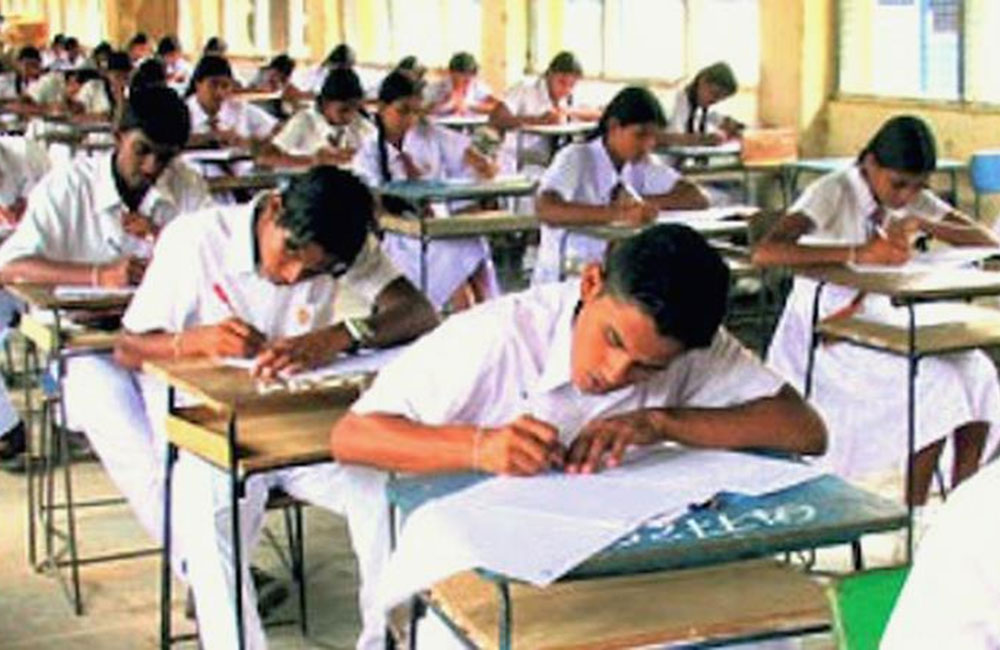
2024 A/L exam will not be postponed - Education Ministry
The 2024 Advanced Level Examination will not be postponed, the Ministry of Education said today (Nov.22).
One of the fundamental rights (FR) petitions filed seeking the postponement of the exam has been dismissed by the Supreme Court, while the other was withdrawn by the petitioners.
As such, the 2024 A/L exam will be held as scheduled, from January 04 to 31 next year, the ministry said further.
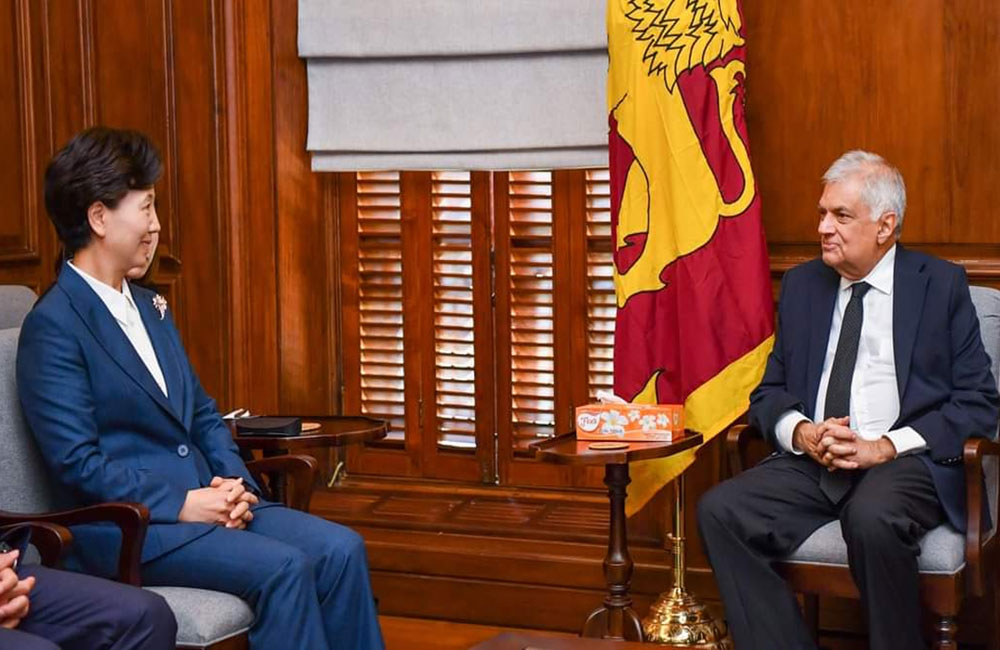
Special envoy of the Chinese President meets President Ranil
The Special envoy of the Chinese President, state councillor Mrs. Shen Yiqin, and the delegation paid a courtesy call on President Ranil Wickremesinghe this morning (20) at the Presidential Secretariat. The primary focus of the meeting was to enhance tourism and trade relations between the two countries.
The President expressed gratitude for China’s support to Sri Lanka, notably acknowledging their assistance in the country’s debt restructuring program. He extended sincere thanks to the Chinese President and the government for their invaluable support in this regard.
Additionally, President Ranil Wickremesinghe expressed Sri Lanka’s desire to augment cooperation between the two countries in the fields of tourism, sports and agriculture also highlighted that both the Hambantota Port and Port City are currently prepared for investment opportunities.
The President also noted that countries such as Sri Lanka, participants in the Belt & Road initiative, are prepared to embark on the second phase of the initiative, which is expected to make a more substantial economic contribution.
The President outlined the measures taken by Sri Lanka to access the Regional Comprehensive Economic Partnership (RCEP, while further affirmed Sri Lanka’s commitment to preserving the Indian Ocean as a free zone for navigation and ensuring it remains a peaceful region, free from global geopolitical rivalries.
The Chinese Special Envoy stated that China is also prioritizing the extension of the China-Myanmar Economic Corridor to Sri Lanka. Additionally, both parties agreed to expedite the implementation of the China-Sri Lanka Free Trade Agreement.
Mrs. Shen Yikn reaffirmed China’s enduring support to Sri Lanka and emphasized her commitment to strengthening the relations between the two countries.
The President was accompanied by President’s Senior Adviser on National Security & Chief-of-Staff Sagala Ratnayaka, Secretary to the President Saman Ekanayake, and Director of International Affairs Dinouk Colombage. (PMD)

Sanath Nishantha suspended from parliament for 2 weeks
State Minister Sanath Nishantha has been suspended from parliament for a period of two weeks due to his unruly behaviour inside the Chambers on Tuesday (Nov.21).
Speaker Mahinda Yapa Abeywardena communicated the announcement to the Members of Parliament after the Third Reading or the Committee Stage debate on the 2024 Budget kicked off this morning.
Abeywardena said he vehemently deplores the tense situation that ensued during Tuesday’s parliamentary session.
As Opposition Leader Sajith Premadasa raised questions about the individuals including the Rajapaksa brothers who were held responsible by the Supreme Court for the economic crisis facing the country, several SLPP MPs including State Minister Sanath Nishantha had disrupted his speech and surrounded his seat, creating a commotion.
As the ruckus grew out of hand, the Speaker had suspended the parliamentary session and walked out of the Chamber.
State Minister Nishantha was also accused of snatching the opposition leader’s binder containing official documents during the uproar.
Meanwhile, Chief Opposition Whip Lakshman Kiriella has requested the Speaker to take disciplinary action against the group of parliamentarians who interrupted Premadasa.

‘Nas Daily’ signs agreement with Sri Lanka Tourism
Popular international vlogger ‘Nas Daily’ signed a Memorandum of Understanding (MoU) with Sri Lanka’s Tourism Promotion Bureau (SLTPB) today (Nov 20).
International vlogger ‘Nas Daily’ is currently in Sri Lanka on an invitation extended by the SLTPB.
Issuing a statement, the Tourism Ministry said the agreement signed with ‘Nas Daily’ is aimed at helping promote Sri Lanka Tourism.
Meanwhile, taking to ‘X’, Minister of Tourism Harin Fernando announced an agreement has been signed with ‘Nas Daily’ to produce three special videos promoting Sri Lanka Tourism.
Nuseir Yassin is an Israeli-Palestinian-Kittitian vlogger, known as ‘Nas Daily’, from the name used on his Facebook, TikTok and Instagram pages for his over 1,000 daily, one-minute-long videos.
He has previously produced three videos on Sri Lanka titled ‘This is Made of Poop’, ‘My Biggest Money Mistake’, and ‘The Key Board Warrior’.
In 2020, ‘Nas Daily’ named Sri Lanka as ‘The Most Generous Country During Covid’, via a video produced of the same name.

Mrs. Mahagama Sekara passes away
Mrs. Kusumalatha Mahagamasekara, the beloved wife of the late literary great – Mahagama Sekara, passed away today (21).
She was aged 88 years.
A graduate of Peradeniya University, Mrs. Mahagamasekara served as a language and literature teacher in various schools across the island for an extended period.
The remains will be placed for final respects at the ‘Restpect’ parlour in Borella, November 24, starting from 10.00am.
Final rites are scheduled to take place on Saturday, Nov. 25, at 10.30 am at the cremation grounds at the Kithulwatta Road entrance of the Borella Public Cemetery.
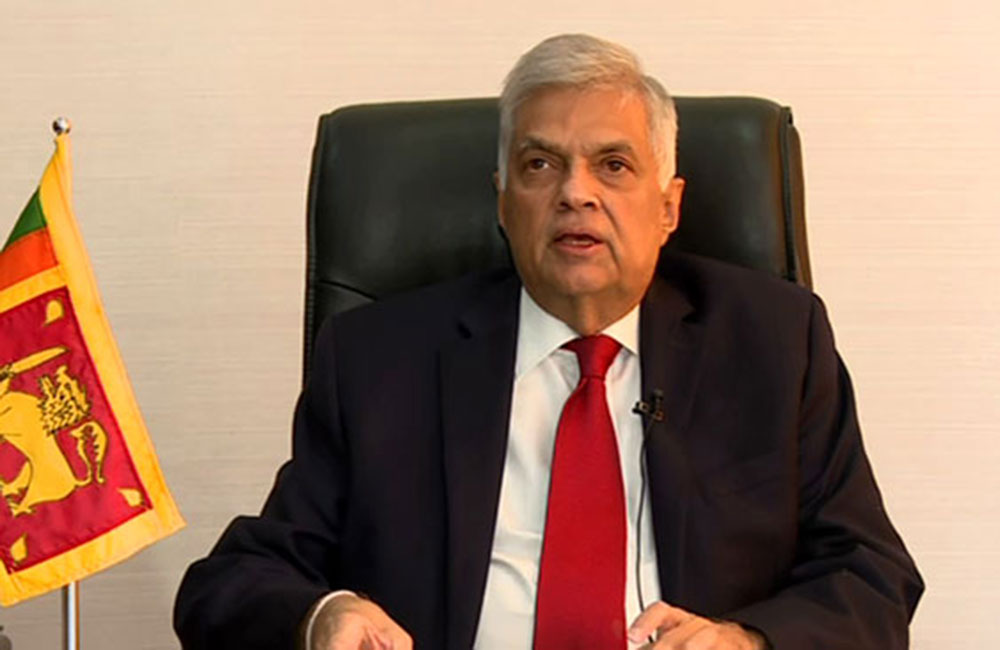
President addresses second Voice of Global South Summit
In a virtual address during the Leader’s Session of the Second Voice of Global South Summit, President Ranil Wickremesinghe expressed gratitude to Prime Minister Narendra Modi for the invitation, acknowledging India’s pivotal role in organizing the event.
The summit was inaugurated by Prime Minister Modi and attended by distinguished leaders from various developing countries, the President’s Media Division (PMD) said in a statement.
Reflecting on the significance of the first Voice of Global South Summit, President Wickremesinghe commended India’s leadership and the positive impact it had on drawing international attention to the priorities of the developing world. He noted the successful outcomes of the G20 Summit under India’s presidency, which identified key priorities and diverse issues relevant to developing nations.
During his address at the First Summit, President Wickremesinghe highlighted common challenges faced by the Global South, particularly economic issues such as debt settlement difficulties and limited accessibility to international financial markets. He underscored the need for external assistance from multilateral institutions and developed economies, with India positioned as a bridge between developing economies and G20 countries to address these challenges, it said.
Updating on Sri Lanka’s economic progress, President Wickremesinghe mentioned the receipt of the first tranche of the IMF’s loan and progress in the Official Creditors’ Committee on Sri Lanka’s bilateral official debt. He emphasized the complexity of the issue of indebtedness, calling for collaboration between creditors and international financial institutions to find sustainable solutions.
Addressing the economic challenges faced by Sri Lanka, President Wickremesinghe presented the budget for the next year to the Sri Lankan Parliament, focusing on ameliorating the condition of the people, especially the vulnerable, amid the worst economic crisis in the country’s history.
Looking ahead, President Wickremesinghe highlighted the importance of attracting foreign investment and developing connectivity for long-term growth. The Vision Statement issued with Prime Minister Modi during his visit to India this year focuses on promoting connectivity between the two economies across all sectors and between the people of both countries for mutual benefit.
President Wickremesinghe suggested a special focus on cooperation in digitalization, recognizing India’s leadership in this sphere. He expressed eagerness for advancements in digitalization to contribute to both growth and entrepreneurship, as well as more effective governance. The President concluded by wishing the summit success in its deliberations on these crucial matters, according to the PMD.
Page 238 of 684